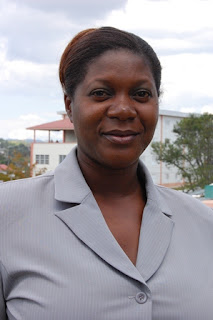By Marsha N. Woolery
Breast milk provides an infant with all the nutrients and water required for growth and development.
Breast milk provides an infant with all the nutrients and water required for growth and development.
It has superior properties which are uniquely made for human babies. (Human milk for human babies, cow's milk for calves). The human milk is the standard for which all artificial (canned) formula is made.
The health ministry and other medical and interest groups support the breastfeeding campaign every third week in September. This year's theme was 'Support breastfeeding: learning from the past - securing the future'.
Lessons from the past
What lessons can we learn from the past? More than 90 per cent of Jamaican mothers initiate breastfeeding after giving birth, but less than half of these mothers continue to exclusively breastfeed by the time baby is three months old.
Exclusive breastfeeding means no juice, no tea, no water, just breast milk.
The World Health Organization and the health ministry recommend exclusive breastfeeding for the first 28 weeks of life (unless there is a medical problem).
Babies who have to be separated from mothers (returning to work, etc.) should be cup-fed breastmilk that has been removed or expressed using clean hands or an electric or battery-operated breast pump.
Numerous benefits
Breastfeeding and breast milk have numerous benefits to mother, baby, family, country and the environment. These include bonding between mother and child, weight loss (if mom does not consume more calories than needed), return to pre-pregnancy shape (waistline decreases or gets smaller as womb shrinks back to normal life), and lower risk of cancer of the ovaries and breasts, if mother exclusively breastfeeds for six months.
The baby benefits from perfect nutrition as breast milk has all nutrients - carbohydrates, protein, fat, vitamins, minerals and water - in the correct amounts. Breast milk provides growth hormones, factors for infant growth and development and to keep the intestines healthy, and antibodies to protect against infections.
The family benefits
The family benefits from the assurance that baby is receiving good nutrition for less money (no need to buy formula, buy or boil water, no bottles, sipper cups, pacifiers) and lower electricity and water bills.
The country benefits from lower energy usage; less need for foreign exchange to import formula, bottles, nipples etc.; and less money spent to treat or cure childhood illnesses or diseases, such as diarrhoea, diabetes, high blood pressure, obesity and cancers. The benefits to the environment include less air pollution as persons sometimes burn the empty formula containers, plastic bottles, nipples, etc., and formula containers form a part of the non-biodegradable waste in landfills.
With so many benefits to breastfeeding, it is important that breastfeeding education commences before pregnancy occurs and continues through pre- and post-natal clinics in the public and private-health care systems. There should be the development of a national breastfeeding policy to include the education of all health-care professionals and students in tertiary schools and skills-training programmes.
Marsha N. Woolery is a registered dietitian/nutritionist in private practice and adjunct lecturer at Northern Caribbean University. Email yourhealth@gleanerjm.com.

No comments:
Post a Comment